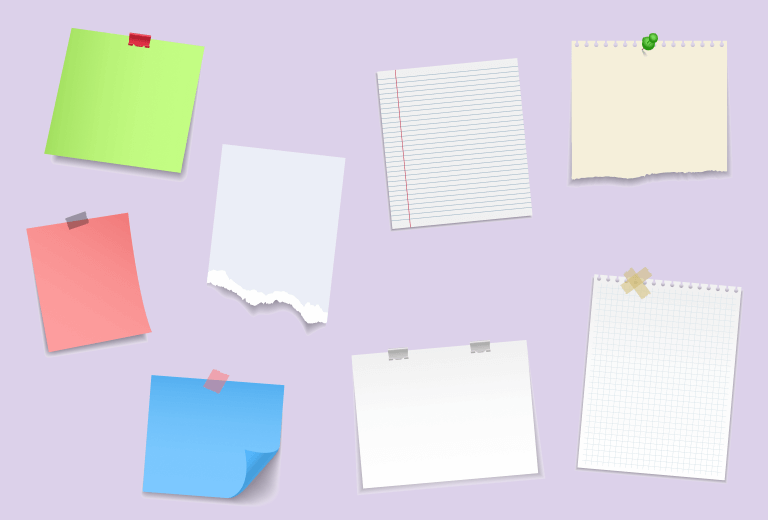Did you know that having a good resume is not all about the format, style, and section arrangement? In some cases, a good resume is one that is written on a good resume paper. This is the kind of resume that somehow conveys your value through the color, weight, texture, and material of the paper.
Yes, resume papers are not very common components for job interviews. You have probably never had a recruiter asking you to write your resume on ivory paper instead of white paper. After all, this is the digital era and resumes have also taken digital formats. Nevertheless, many different situations require you to use them in place of regular papers to score jobs.
The main objective of this article is to show you the different types of specialized paper for resumes and what using each type says about you. We also differentiate between them and regular papers. But, are resume papers still a thing? If they are, there are different types of paper: which is the best for resumes? These are some of the questions we answer in this article.

Table of Contents
What is a Resume Paper?
This is just any paper that was made for resume writing. It is different from the kind of paper you see around offices. It is the best material for resume writing. This is because resumes look and feel (dare we say, and smell) better with special papers. So, in brief, these papers are special because they are suitable for resumes.

In that last definition, we included the concept of suitability. This means that a specialized paper for resumes is not the paper you tear out of a notebook. A piece of paper does not automatically become suitable for resumes because you have written your resume on it. The paper itself somehow adds to your credibility as a suitable candidate for the job you are gunning for.
Following the above specifications, a resume paper is slightly heavier and stiffer than a regular paper. Of course, what you are likely to notice first about these special papers is that they have color. In other words, they are not plain white, although there are a few exceptions. Nevertheless, compared to regular papers, papers for resumes look different, weigh different, and feel different from regular papers.
Resume Vs. Regular Papers
Building on the last point from the previous section, papers for resumes are often very different from regular papers. The former is generally better (that is, of higher quality) than the latter. Yes, the resume layout may be the same, but there is a difference in quality. To be specific, we can make 4 distinctions between these two types of paper.

Purpose
The main purpose of a resume paper, as you can tell from the name, is to write resumes. Resumes just look better on these special papers than they do on regular papers. Therefore, if you make copies of your resume and have one copy on an ordinary regular paper and another on special paper, the latter will get more attention.
A regular paper is just that, an ordinary paper that can be used for different purposes. Thus, you can have your resume on a regular paper.
Color
You have probably never seen resumes written on paper other than white. This is because white is considered an executive or corporate color. So, when a regular paper is used for resume writing, it has to be white. Resume papers are not restricted in the same sense.
They can be white, yes, but they must not be. In fact, resumes are often better written in ivory. This is why ivory paper is commonly used for resumes, especially when the paper is stiffer, heavier, and more durable.
Weight
Weight is likely the most definitive difference between a resume paper and a regular paper. What you likely refer to as regular paper is usually the light type you find everywhere. However, in the context of this article, regular papers are very different.
The latter, on the other hand, have an appropriate weight range. According to Inside Recruiter, the best range for these papers is between 24 lb and 32 lb. Anything more or less is too heavy or light and should be reserved for other purposes. Thus, you can confidently write your resume on any paper that weighs between 24 lb and 32 lb
Texture
Texture is also a very important variable that differentiates specialized papers for resumes from regular papers. These papers may be smooth or rough depending on the material used for them. A regular paper, on the other hand, is always smooth since it has no specific purpose.
Some of the most common materials are cotton, linen, parchment, granite, and laid. Papers with these materials feel very different from papers made from plain paper.
Are Resume Papers Necessary?
Moving on, is it necessary to print your resume on a special paper? Why go through the headache of sorting papers according to weight, color, and texture? Well, it depends on the situation. Better yet, it depends on the recruiter.
If you are required to send in your resume as a PDF file, for example, you don’t need any special paper. Getting paper for these kinds of jobs is a waste of time and money. After all, you won’t be submitting your resume in person.
However, if you do have to personally (that is, directly) submit your resume to the recruiter, you need specialized paper. Another situation where resume papers are necessary is when you are called in after submitting a digital version of your resume. In such instances, the recruiters may want to ask you questions, so having your resume handy (that is, on resume paper) can make all the difference.
What Type of Resume Paper is Best According to Recruiters?

As you have probably guessed, there are many good paper types for resumes. The differences between these types are usually based on color, weight, texture, and cotton content.
The Best Color for Resume Papers
Resume papers can come in different colors. Also, some colors are more appropriate for some job categories/industries than others. Nevertheless, it is better to play it safe and stick with white or ivory.
These colors magnify your resume and are not too distracting.
The Best Weight for Resume Papers
Weight is the easiest factor to manage. As we mentioned earlier, the best range for good resumes is between 24 lb and 32 lb. This range is just right to convey seriousness and is stiff enough to indicate that it is different from common paper.
The Best Texture (and Material) for Resume Papers
It is difficult to decide on the best texture. Paper material often plays a big role in how your resume ‘pops’ to recruiters. So, if you want your modern resume to stand out, you need to pay attention to the paper texture.

Linen, for example, is premium-quality and essentially tells the recruiter, “I care about first-rate stuff.” Granite, on the other hand, communicates reliability and steadfastness. Moreover, granite stands out in both color and feel. However, cotton paper is the standard material.
According to UK.Indeed.com, cotton is the best material for dedicated papers for resumes. It does not distract the recruiter from the resume itself. Combine this material with the best resume fonts and your resume will stand out. Thus, it is the safest option.
Where to Buy Resume Paper?
Resume papers are sold in most local stores, especially those with a thing for stationery. FedEx is a common choice. Nevertheless, you can order different such papers from the following reputable shops:
Where Can I Print My Resume?
It is generally better to print your resume yourself. In other words, having a printer at home can save you the stress of visiting local stores or FedEx offices. However, if you don’t have a printer at home, you have no other choice but to visit said local stores.
We already mentioned FedEx as a place you can print your resume on your preferred paper type. A local library is another reliable place to print your resume this way. Other places include Staples and Office Depot.
Before printing, make sure that inkjet printers are used since these have a high-quality printout. Of course, if you can find another printer type with better printout options, use it.
Conclusion
Using a resume paper instead of a regular paper can make all the difference during job interviews. The paper has a specific purpose, so using it suggests to the recruiter that you are a focus-minded individual.
Of course, using special papers for your resume is out of the question when recruiters only ask for digital resume submissions. Nevertheless, where you have to meet the recruiter in person, having your resume on a special paper can help you stand out.